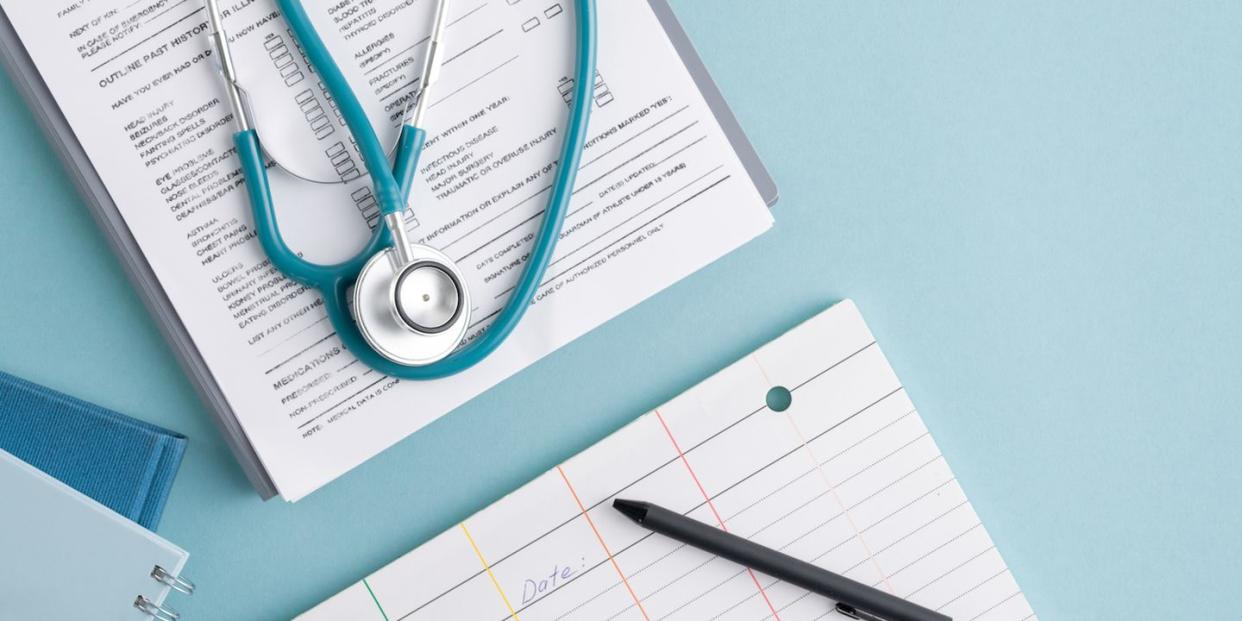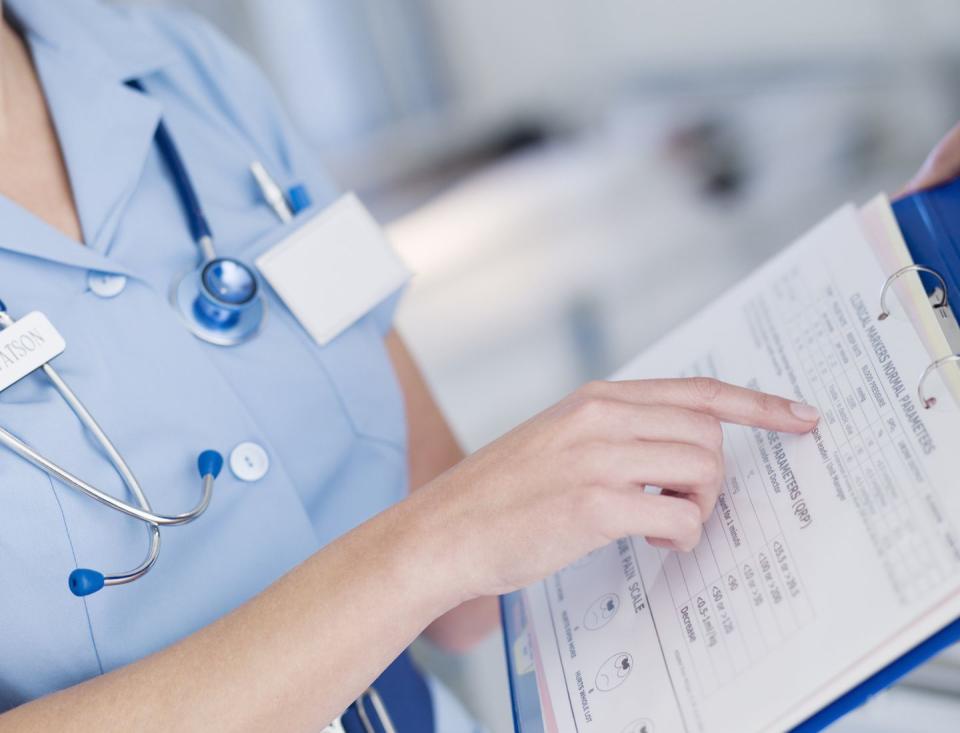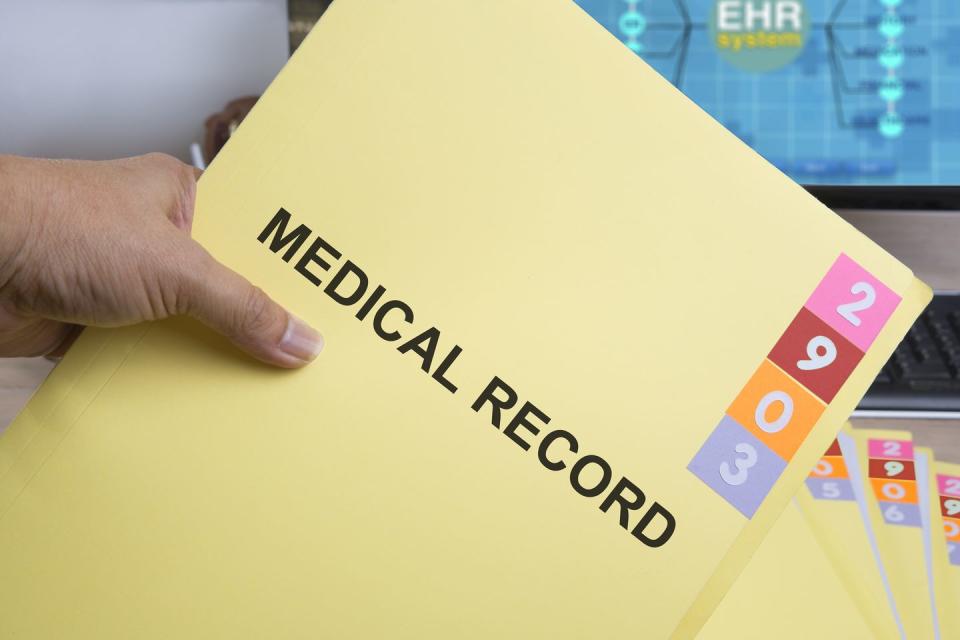How to opt out of the government sharing your private health records

Chances are you'll have recently received a forwarded, panicked WhatsApp message from a friend or spotted a tweet about the 'government's NHS data grab' – but you may not know exactly what it's all about. In a nutshell: there's been a load of backlash because it's become public knowledge that the government have access to, and in some instances share and sell on, your personal health data on (sourced through your private medical records) through NHS Digital.
Initially the government placed a deadline of 23 June on opting out of the new data-sharing scheme, but following pushback they have now extended it until 1 September. Meaning, that's the last day patients can formally request that their data isn't shared outside of their doctor's surgery if that's what they'd feel more comfortable with.
Many are wondering how their private medical records - which include your sexual and mental health history - might be used by external groups and why the government want access to such information. Here's the full rundown on that, plus everything else you need to know about NHS Digital's data sharing plans.
What is the new NHS Digital data sharing scheme?
Well, according to the NHS Digital website, this whole data collection thing isn't actually that new after all... it says that data has been collected via GPs to "meet bespoke data requests for over ten years". The difference this time around is that the system is having a shake-up, being streamlined and replaced with a new General Practice Data for Planning and Research (GPDPR) service.
NHS Digital said this "broader, general-purpose collection will enable faster access to pseudonymised patient data for planners and researchers" and issued a Data Provision Notice to GPs back on 12 May, to announce that the data collection process will begin from 1 September 2021. For many patients though, he first time they'll have heard that their health data is shared with external parties.

In terms of what data is actually collected, NHS Digital will not collect your name or where you live, or any other data that could make you directly identifiable (e.g. your NHS number, General Practice Local Patient Number, full postcode and date of birth). This information will be replaced with unique codes, created by special software.
"Said software could convert the unique codes back to data that could directly identify you under certain circumstances, and where there is a valid legal reason," adds NHS Digital. "An example would be where you consent to your identifiable data being shared with a research project or clinical trial in which you are participating, as they need to know the data is about you."
What personal data will NHS Digital collect?
It will collect:
Data on your sex, ethnicity and sexual orientation
Clinical codes and data about diagnoses, symptoms, observations, test results, medications, allergies, immunisations, referrals and recalls, and appointments, including information about your physical, mental and sexual health
Data about staff who have treated you
It will not collect:
Your name and address (except for your postcode in unique coded form)
Written notes (free text), such as the details of conversations with doctors and nurses
Images, letters and documents
Coded data that is not needed due to its age – for example medication, referral and appointment data that is more than a decade old
Coded data that GPs are not permitted to share by law – for example certain codes about IVF treatment, and certain information about gender re-assignment
Why does the government want the NHS to share our personal health data?
An NHS Digital spokesperson told Cosmopolitan that patient data has long been shared via GPs and hospitals with the hopes of improving healthcare services, informing policies and for medical research, resulting better treatments.
"During the pandemic, data from GPs has been used to benefit millions of us," the spokesperson said. "It has been helping to identify and protect those most vulnerable to COVID-19, and to help roll out our vaccine programme, and identify hospital treatments which have prevented people dying from COVID."
They added, "We have engaged with doctors, patients, data, privacy and ethics experts to design and build a better system for collecting this data. The data will only be used for health and care planning and research purposes, by organisations which can show they have an appropriate legal basis and a legitimate need to use it."
The NHS Digital spokesperson said that patients have had the opportunity to opt out of this type of data sharing for several years using what's known as a Type 1 Opt-out – but part of the uproar lately is that this hasn't been clearly communicated by the government, or the NHS.

Why are people unhappy about the NHS Digital data collection?
When reading the small print, the NHS Digital site and press releases says it will not (and does not) allow data to be used "solely for commercial purposes" – leaving many wondering what constitutes as 'solely'.
To this note, NHS Digital have confirmed they will not approve requests for data to be used for:
Insurance or marketing purposes
Promoting or selling products or services
Market research
NHS Digital adds that, "Data will only be shared with organisations who have a legal basis and meet strict criteria to use it for local, regional and national planning, policy development, commissioning, public health and research purposes."
How do you opt out of having your health records shared by NHS Digital?
If a patient does not want identifiable data to be shared outside of their GP Practice (except for in relation to their own care) they can opt-out at any time. To do this, they must simply request that their GP practice record their preference, known as a Type 1 Opt-out, and return this form to said GP practice.
For those who've previously registered a Type 1 Opt-out but would like to withdraw it, the same form can also be used. You can send the form via post or email to your GP practice, or call 0300 3035678 and request that the form is be sent out to you. To see if your confidential patient data is currently being shared, check here via the NHS website.
For more information, see this blog post by NHS Digital
You Might Also Like


